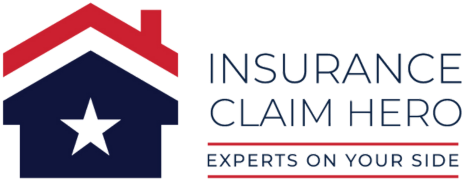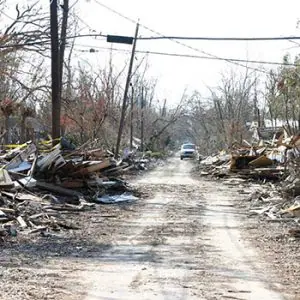Navigating the world of insurance claims can be a daunting experience, especially when encountering unfamiliar terms and jargon. Understanding these key insurance terms is crucial to successfully managing your homeowners insurance claim.
In this blog post, we provide a comprehensive glossary of words, phrases, and acronyms commonly used in the insurance claim handling process.
Table of contents
Actual Cash Value (ACV)
Actual Cash Value refers to the current market value of an item, taking into account depreciation. It represents the amount an insurance company would pay to replace the damaged or destroyed property, minus the decrease in value due to age, wear, and tear.
Adjuster
An adjuster is an individual appointed by an insurance company to evaluate property damage, determine coverage, and settle claims. There are three types of adjusters: company adjusters (employed by insurance companies), independent adjusters (contracted by insurance companies), and public adjusters (hired by policyholders).
Claim
A claim is a formal request submitted by a policyholder to their insurance company, seeking compensation for damages or losses covered under their insurance policy.
Coverage
Coverage refers to the specific protection provided by an insurance policy, outlining the risks, property, or perils that the insurance company agrees to indemnify.
Deductible
A deductible is the amount a policyholder must pay out of pocket before the insurance company covers the remaining costs. Deductibles can be either a fixed dollar amount or a percentage of the insured value.
Depreciation
Depreciation is the decrease in an item’s value over time due to factors such as age, wear and tear, or obsolescence.
Endorsement
An endorsement, also known as a rider or policy amendment, is a document that modifies the terms of an insurance policy, adding or removing coverage.
Exclusion
An exclusion is a provision in an insurance policy that specifically denies coverage for certain losses, perils, or property.
Indemnity
Indemnity is a principle in insurance that aims to restore the policyholder to their financial position before the loss occurred, without resulting in profit or loss.
Liability
Liability refers to a policyholder’s legal responsibility for damages or injuries caused to others.
Loss
A loss is any damage, destruction, or injury to persons or property covered under an insurance policy.
Loss of Use
Loss of use is a coverage that compensates policyholders for additional living expenses incurred if their home becomes uninhabitable due to a covered loss.
Peril
A peril is an event or occurrence that causes damage, destruction, or injury to persons or property. Common perils include fire, theft, and natural disasters.
Policy
A policy is a legal contract between an insurance company and a policyholder, outlining the terms and conditions of the insurance coverage.
Policy Limit
A policy limit is the maximum amount an insurance company will pay for a covered loss under a specific coverage or policy.
Premium
A premium is the amount a policyholder pays to an insurance company in exchange for coverage, typically paid monthly, quarterly, or annually.
Replacement Cost
Replacement cost is the amount it would take to replace damaged or destroyed property with new items of like kind and quality, without factoring in depreciation.
Subrogation
Subrogation is the process by which an insurance company seeks reimbursement from a third party responsible for a covered loss after compensating the policyholder.
Wrap-up
Understanding these key insurance terms is essential for successfully navigating the claims process and advocating for your best interests. Familiarize yourself with this glossary to better understand your insurance policy and communicate effectively with insurance professionals.
Armed with this knowledge, you can confidently manage your homeowners insurance claim and ensure that you receive the fair compensation you deserve.
FAQ
ACV is the market value of an item, considering depreciation. It’s what an insurance company pays for a covered loss after deducting value lost over time.
An adjuster evaluates damage and settles claims on behalf of the insurance company. There are company, independent, and public adjusters.
A claim is a formal request by the policyholder for compensation for losses or damages covered under their policy.
Coverage details the protection an insurance policy provides, including which risks and perils are covered.
A deductible is the amount paid out of pocket by the policyholder before the insurance covers the rest. It can be a fixed amount or a percentage.
Depreciation is the reduction in value of an item over time due to wear, tear, or obsolescence.
An endorsement modifies an insurance policy by adding or removing coverage.
Exclusions are specific conditions or events that an insurance policy does not cover.
Indemnity is a principle ensuring the policyholder is restored to their pre-loss financial position without profit or additional loss.
Liability refers to the legal responsibility for damages or injuries the policyholder causes to others.
A loss is any damage, destruction, or injury covered by an insurance policy.
Loss of Use covers additional living expenses if your home is uninhabitable due to a covered loss.
A peril is an event that causes damage or destruction, like fire or theft.
A policy is the contract between an insurance company and the policyholder, outlining coverage terms and conditions.
Policy limits are the maximum amounts paid by an insurance company for a covered loss.
A premium is the payment made by the policyholder for insurance coverage.
Replacement cost covers the expense of replacing damaged property with new items, without depreciation.
Subrogation is when an insurance company seeks repayment from the party responsible for the loss after compensating the policyholder.





